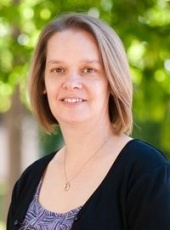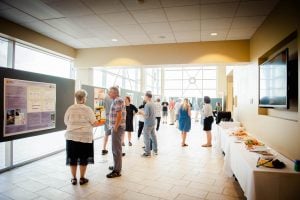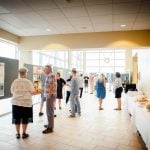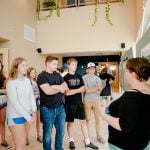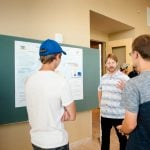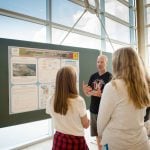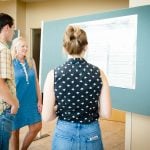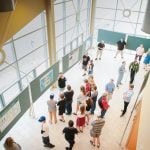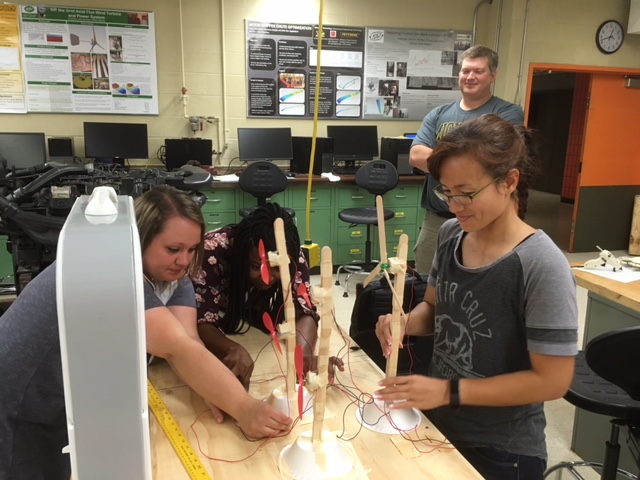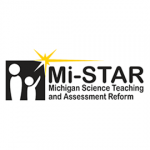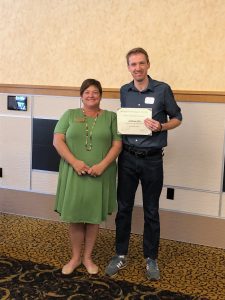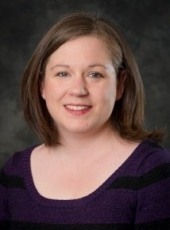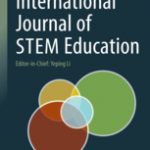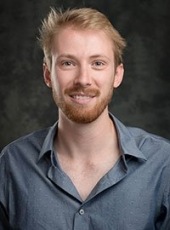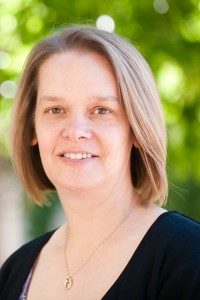 Shari Stockero (CLS/Math) has been named the 2019 Mathematics Teacher Education Outstanding Reviewer by the Association of Mathematics Teacher Educators. Her research focuses on noticing high-potential instances of student mathematical thinking (MOSTs) and understanding what it means to productively use these instances to support student learning. Specifically, in her current work, she and her colleagues are working with a group of teacher-researchers from across the US to enact and study the teaching practice of building on MOSTs. She is also working on a project to develop middle school science teacher leaders in Michigan. Congratulations Shari!
Shari Stockero (CLS/Math) has been named the 2019 Mathematics Teacher Education Outstanding Reviewer by the Association of Mathematics Teacher Educators. Her research focuses on noticing high-potential instances of student mathematical thinking (MOSTs) and understanding what it means to productively use these instances to support student learning. Specifically, in her current work, she and her colleagues are working with a group of teacher-researchers from across the US to enact and study the teaching practice of building on MOSTs. She is also working on a project to develop middle school science teacher leaders in Michigan. Congratulations Shari!
Mi-STAR’s curriculum and its associated professional learning program were designed and developed in full alignment with the Next Generation Science Standards (NGSS) and the Michigan Science Standards. The curriculum is unique in that it integrates content and methods across the traditional disciplinary boundaries of Earth and space science, life science, engineering and physical science. Engineering principles are fully embedded in the curriculum; engineering is not treated as an afterthought or add-on by Mi-STAR.
Although the curriculum is still being developed, all of the 6th-grade units will be available in time for the start of school in fall 2018. Several 7th- and 8th-grade units will also be available for the fall. When completed, the entire middle school curriculum will address all of the middle school standards.
Mi-STAR’s curriculum and associated professional learning support student-centered instruction in middle school classrooms. Each unit in the Mi-STAR curriculum addresses a real-world problem that is of wide interest to 21st-century society. By maintaining a focus on real-world problems, the curriculum helps students understand how science and engineering are used to design solutions to issues that are relevant to their communities and the world.
“By partnering with a major corporation to produce and deliver kits to schools, Mi-STAR will be able to expand its reach and provide better service to educators and other users” says Jackie Huntoon, provost and vice president for Academic Affairs at Michigan Tech. Huntoon noted “anything a STEM-focused University like Michigan Tech can do to increase students’ interest in science before they graduate from high school will ultimately benefit our state and the nation.
“Michigan Tech scientists and engineers have devoted a lot of time and effort into making Mi-STAR the best it can be—and these efforts are really having a positive impact on Michigan’s teachers and students.”
Mi-STAR was founded in 2015 through a generous gift to Michigan Tech from the Herbert H. and Grace A. Dow Foundation. In 2017, Mi-STAR was identified as a promising program by STEMworks at WestEd.
School districts partnering with Mi-STAR have been successful at obtaining support from the Michigan Department of Education to enhance their teacher’s professional learning and to improve science learning outcomes among their students while using the Mi-STAR curriculum and professional learning program. In 2018, Michigan Tech received funding from the National Science Foundation Robert Noyce Teacher Scholarship Program that will be used to increase the number of teachers proficient with Mi-STAR’s NGSS-aligned curriculum and who are prepared to lead reform efforts in their schools, districts and the state.
As of January 2018, Mi-STAR was used by more than 450 teachers in more than 100 schools/districts with an estimated 45,000 students. Nasco was started in 1941 by a vocational agricultural teacher, Norman Eckley. Starting as a simple operation in a two-car garage, Nasco has grown to an enterprise publishing more than 35 different catalogs, with an annual circulation exceeding 5 million, to customers in education, agriculture, healthcare training and lab sampling worldwide featuring materials available for a wide array of educational, training and production needs.
by Jackie Huntoon, Provost and Vice President of Academic Affairs
